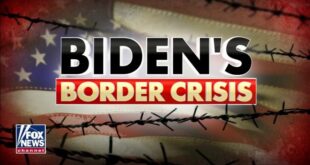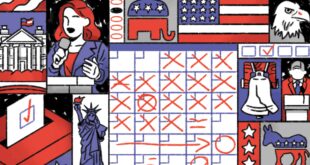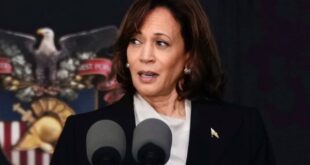Court rules nearly 98,000 Arizonans whose citizenship hadn’t been confirmed can vote the full ballot. This ruling, issued by a federal court, has ignited debate and raised questions about voter rights and the complexities of citizenship verification in Arizona. The case stemmed from a challenge to a state law requiring voters to provide proof of citizenship during registration.
The court ultimately ruled in favor of the plaintiffs, finding that the law was unconstitutional and violated the National Voter Registration Act.
The ruling has significant implications for voter registration in Arizona, potentially impacting the upcoming elections. It could affect the process of registering to vote, especially for individuals whose citizenship status is not immediately verifiable. Furthermore, the decision could have ripple effects across the country, influencing how other states handle voter ID laws and citizenship verification requirements.
Background of the Ruling
A recent court ruling in Arizona has impacted the state’s voter registration process, allowing nearly 98,000 individuals whose citizenship hadn’t been confirmed to vote in the upcoming election. This decision came after a legal challenge against a state law that required voters to provide proof of citizenship during registration.The ruling stems from a lawsuit filed by the League of Women Voters of Arizona and other groups, challenging the constitutionality of Arizona’s “Proof of Citizenship” law.
This law, enacted in 2004, required voters to provide documentation, such as a birth certificate or passport, to prove their citizenship during voter registration. The plaintiffs argued that the law violated the National Voter Registration Act (NVRA), which allows voters to register using a federal form that does not require proof of citizenship.
Arguments Presented by Both Sides
The plaintiffs in the case argued that the Arizona law placed an undue burden on eligible voters, particularly those who are naturalized citizens or who may have difficulty obtaining the required documentation. They also contended that the law was unnecessary and created a barrier to voter registration, potentially disenfranchising eligible voters.The state of Arizona, on the other hand, argued that the law was necessary to ensure the integrity of elections by preventing non-citizens from voting.
They asserted that the NVRA did not preempt state laws that required proof of citizenship and that the law was consistent with the state’s interest in protecting the integrity of its elections.
Impact of the Ruling on Arizona’s Voter Registration Process
The court’s decision has significant implications for Arizona’s voter registration process. The ruling effectively invalidates the “Proof of Citizenship” law, allowing individuals who have registered to vote using the federal form, even without providing proof of citizenship, to cast ballots in the upcoming election.
Notice ‘Shocks the conscience’: Video shows inmates brutally attacking Souza Baranowski Correction officers for recommendations and other broad suggestions.
This means that nearly 98,000 individuals who had previously registered but did not provide proof of citizenship will now be eligible to vote. The ruling is likely to have a lasting impact on Arizona’s voter registration process, potentially leading to a significant increase in the number of registered voters.
The decision also sets a precedent for other states with similar laws, potentially prompting similar legal challenges and court decisions.
Implications for Voter Rights
This ruling has significant implications for the voting rights of Arizona residents, particularly those whose citizenship hasn’t been confirmed. It raises questions about access to the ballot and the potential for voter suppression.
Potential Challenges to Voter Registration and Participation
The ruling could present challenges for individuals whose citizenship is not confirmed. For instance, they may face difficulties registering to vote due to the requirement of providing proof of citizenship. This could lead to disenfranchisement, particularly for those who are in the process of obtaining citizenship or who may have difficulty accessing the necessary documentation.
Potential Legal and Procedural Hurdles
The ruling may lead to legal and procedural hurdles in voter registration and participation. For example, election officials might face challenges in verifying the citizenship status of individuals whose citizenship is not confirmed. This could lead to delays in processing voter registration applications or even the rejection of applications altogether.
Additionally, the ruling could trigger legal challenges from advocacy groups or individuals who argue that it violates the Voting Rights Act or other federal laws.
Voter ID Laws and Citizenship Verification: Court Rules Nearly 98,000 Arizonans Whose Citizenship Hadn’t Been Confirmed Can Vote The Full Ballot
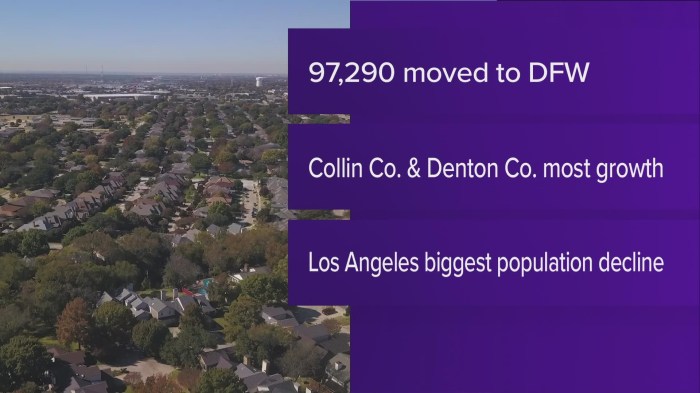
The recent court ruling in Arizona, allowing nearly 98,000 residents to vote the full ballot despite unconfirmed citizenship, has brought renewed attention to the complex issue of voter ID laws and citizenship verification. This decision, which challenges existing voter ID requirements in the state, raises important questions about the balance between voter security and accessibility.
Arizona’s Voter ID Laws and Citizenship Verification
Arizona has a strict voter ID law, requiring voters to present a valid form of photo identification at the polls. The law also includes a provision requiring voters to provide proof of citizenship, such as a birth certificate or passport, when registering to vote.
This requirement has been particularly controversial, as it has been criticized for disproportionately impacting certain groups of voters, particularly those who are new to the country, elderly, or have limited access to government-issued identification.
Voter ID Laws in Other States
While Arizona’s voter ID law is among the most stringent in the country, many other states have implemented similar requirements. However, there are significant differences in the specific types of identification accepted, the methods for verifying citizenship, and the enforcement mechanisms used.
For instance, some states allow voters to present non-photo identification, such as a utility bill or bank statement, while others require a government-issued photo ID. Similarly, some states accept alternative forms of citizenship proof, such as a naturalization certificate, while others only accept specific documents.
Historical Context and Rationale Behind Voter ID Laws
The debate over voter ID laws has a long history in the United States, dating back to the Jim Crow era. During this period, Southern states implemented a range of measures, including literacy tests and poll taxes, to disenfranchise African American voters.
While these measures were eventually outlawed, concerns about voter fraud and the integrity of elections have continued to fuel the debate over voter ID laws. Proponents of voter ID laws argue that they are necessary to prevent voter fraud and ensure the integrity of elections.
They cite examples of isolated cases of voter fraud, although the incidence of such fraud is extremely low. They also argue that voter ID laws help to deter impersonation and other forms of election interference.
Potential for Voter ID Laws to Disenfranchise Voters
Opponents of voter ID laws argue that they disproportionately impact certain groups of voters, particularly those who are low-income, minority, elderly, or disabled. They point to the fact that these groups are less likely to have government-issued photo identification, and that the process of obtaining such identification can be burdensome and costly.
They also argue that voter ID laws are unnecessary, as there is no evidence of widespread voter fraud. Instead, they claim that these laws are a form of voter suppression, designed to make it more difficult for certain groups of people to vote.
Examples of Disenfranchisement
One study by the Brennan Center for Justice found that approximately 11% of eligible voters in the United States do not have government-issued photo identification. This means that millions of Americans could be prevented from voting if strict voter ID laws were implemented nationwide.
“Voter ID laws are a solution in search of a problem,” said Michael Waldman, president of the Brennan Center for Justice. “There is no evidence of widespread voter fraud, and these laws only serve to suppress the vote of eligible voters.”
The potential for voter ID laws to disenfranchise certain groups of voters has been a subject of intense debate and litigation. The Supreme Court has upheld the constitutionality of voter ID laws, but it has also ruled that these laws must be narrowly tailored to prevent voter fraud without unduly burdening eligible voters.
Public Opinion and Reactions
The court ruling has sparked a wave of reactions from various stakeholders, including political leaders, advocacy groups, and the general public. Opinions vary widely, with some celebrating the decision as a victory for voter rights, while others express concerns about potential voter fraud and the integrity of elections.
Political Reactions
The ruling has drawn strong reactions from both sides of the political spectrum. Republican leaders, largely opposed to the ruling, argue that it weakens voter ID laws and opens the door to potential voter fraud. They have expressed concerns about the potential for non-citizens to vote, although the ruling itself does not allow non-citizens to vote.
Conversely, Democratic leaders have applauded the decision, emphasizing its significance in ensuring that all eligible voters have access to the ballot. They argue that voter ID laws disproportionately impact minority voters and suppress turnout.
Advocacy Group Reactions
Advocacy groups have also weighed in on the ruling, with voter rights organizations celebrating the decision as a victory for democracy. They highlight the importance of ensuring that all eligible voters can participate in the electoral process without undue burdens.
Conversely, election integrity groups have voiced concerns about the ruling, arguing that it undermines efforts to protect the integrity of elections and prevent voter fraud.
Public Opinion
Public opinion on the ruling is divided, with some individuals expressing support for the decision and others expressing concerns. Surveys conducted after the ruling reveal that a majority of Americans believe that all eligible voters should have the right to vote, but there is also significant concern about the potential for voter fraud.
Potential Impact on Voter Turnout and Election Outcomes
The ruling’s impact on voter turnout and election outcomes in Arizona remains to be seen. Some experts argue that the decision could lead to increased voter turnout, particularly among historically marginalized communities who may have been discouraged from voting due to strict voter ID laws.
Others, however, argue that the ruling could lead to increased voter confusion and potential disenfranchisement.
Potential Legal Challenges
The ruling is likely to face legal challenges, with opponents of the decision seeking to overturn it. The case could potentially reach the Supreme Court, where the justices will have the opportunity to weigh in on the constitutionality of voter ID laws and the balance between voter rights and election integrity.
Future of Voter Registration in Arizona
The recent court ruling impacting voter registration in Arizona has raised questions about the future of the state’s voter registration process. The ruling, which allows nearly 98,000 Arizonans whose citizenship hasn’t been confirmed to vote, has implications for the existing voter registration process and may prompt changes in the state’s voter registration laws and procedures.
Current Voter Registration Process
The current voter registration process in Arizona involves several steps. These steps are Artikeld in the table below:
| Step | Description |
|---|---|
| 1. Application | Individuals wishing to register to vote in Arizona must complete and submit a voter registration application. This application requires basic information, including name, address, date of birth, and party affiliation. |
| 2. Citizenship Verification | Arizona law requires voters to provide proof of citizenship when registering to vote. This requirement has been the subject of much debate and legal challenges. |
| 3. Processing and Approval | Once the application is received, it is reviewed by the county recorder’s office. If the application is complete and meets all legal requirements, the voter is registered. |
| 4. Voter ID Requirements | Arizona also has voter ID laws in place, which require voters to present a valid form of identification at the polls. |
Potential Changes to Arizona’s Voter Registration Laws, Court rules nearly 98,000 Arizonans whose citizenship hadn’t been confirmed can vote the full ballot
The recent court ruling may lead to changes in Arizona’s voter registration laws and procedures. One possible change is the elimination of the citizenship verification requirement for voter registration. This would align Arizona’s voter registration process with federal law, which does not require citizenship verification for voter registration.
Another potential change is the modification of voter ID laws to ensure that they do not disproportionately disenfranchise certain groups of voters.
Legislative Action and Legal Challenges
The ruling is likely to prompt legislative action in Arizona. Some lawmakers may attempt to pass legislation that reinstates the citizenship verification requirement or strengthens voter ID laws. However, these efforts may face legal challenges, as they could be deemed unconstitutional.
Additionally, advocacy groups and voting rights organizations may challenge the constitutionality of any new laws or procedures that restrict voter access.
Conclusion
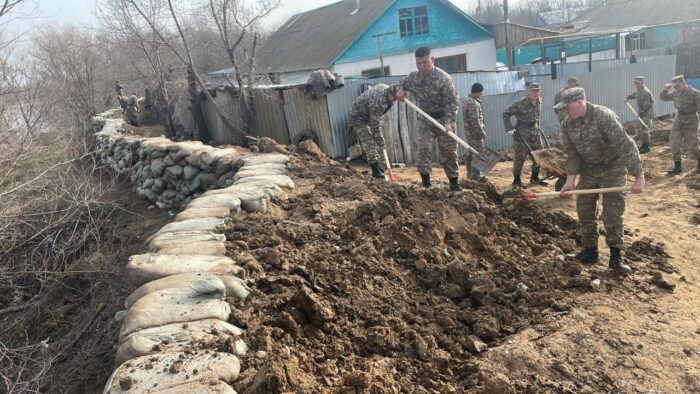
The court’s decision is a victory for voter rights advocates who argue that stricter voter ID laws disproportionately impact marginalized communities. However, it remains to be seen how this ruling will be implemented and what further legal challenges might arise.
The future of voter registration in Arizona, and perhaps across the nation, hinges on how this complex issue unfolds in the coming months and years.
FAQ Summary
What were the specific arguments presented in the case?
The plaintiffs argued that the Arizona law requiring proof of citizenship was overly burdensome and violated the National Voter Registration Act. They also claimed it disproportionately affected minority voters. The state argued that the law was necessary to prevent voter fraud and maintain election integrity.
How will this ruling impact voter turnout in Arizona?
It’s difficult to predict the exact impact on voter turnout. Some argue that the ruling could encourage more people to register and vote, while others believe it might lead to confusion and discourage participation.
Are there any similar cases in other states?
Yes, voter ID laws and citizenship verification requirements have been challenged in various states across the country. The Arizona case is just one example of the ongoing debate about voter rights and election integrity.
 CentralPoint Latest News
CentralPoint Latest News
